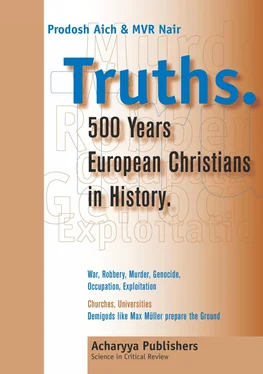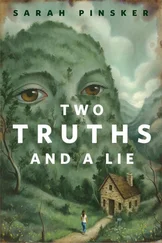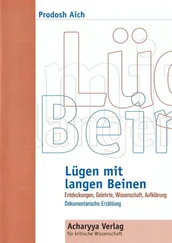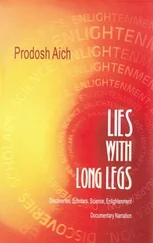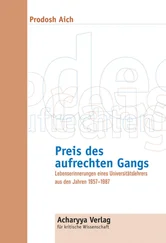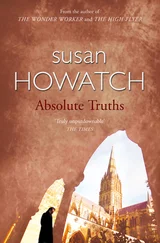We have taken notice of Alexander Hamiltonwhilst we rummaged through available documents. On March 4, 1790, Alexander Hamiltonsubmitted an application to the governor general Lord Cornwallis. This application was detected later among Lord Cornwallis’personal correspondence. We take a note that the application was in the file of personal correspondence. This is the first specimen of the writing quality of Alexander Hamilton. We quote this application here in full:
“My lord.
I beg leave to submit in the most respectful manner to your Lordship’s consideration, a request which I flatter myself will not be deemed unreasonable, when the motives upon which it is founded are considered. A sense of the utility which might be derived from a knowledge of the Sungscrit language, its importance to the political interests of England in this country, and the conviction of that importance discovered by the Court of Directors in their approbation of the ample salary granted to Mr. Wilkins during the crisis of last war to enable him to prosecute that study, as well as in the letter from their Chairman, congratulating that Gentleman on so extraordinary an attainment, encouraged me to engage in a pursuit, where my own inclination was stimulated by so flattering a precedent. The liberal and enlightened policy of the Honble Court could not fail to suggest to them the difficulty of governing a nation, without an intimate acquaintance with its language, religion, laws, manners and customs: and that with respect to the Hindus who constitute the great body of the people, and who from their superiority in mental endowments as well as in industry and number, merit the first consideration, that knowledge is chiefly to be expected from the development of the science contained in their Sacred Language. Whether these, or motives more cogent influenced the Court of Directors I shall not presume to determine; it is sufficient for my purpose to shew by a respectful reference to that document, that it was their wish to encourage the study, and that such a resolution was founded on the wisest principles of policy. A due regard for your Lordship's time will not permit me to encroach on it so far as would be requisite to prove how essentially the knowledge, to which those researches ultimately tend, is connected with the happiness of the subject and the security of property. The importance of the Sungscrit in a political view requires no elucidation, it being the only language universally diffused over every part of Hindustan, by means of which the Bramins of Bengal, Mysore, Guzerat or the Punjab possess a common medium of communication and intercourse, and from which the vernacular dialects of the Provinces do not materially differ. If those observations which I have purposely compressed convince your Lordship of the superior utility of my present pursuits, I may flatter myself I shall experience no difficulty in obtaining a dispensation from military duty at least whilst I continue supernumerary to the Army Establishment. The routine of Garrison duty being altogether incompatible with similar pursuits I may urge my request on different grounds, as the convenience it affords me of indulging my inclination in the research, is my chief if not my sole motive for continuing in a Service, where I have no prospect of attaining beyond the situation of a Subaltern. Should the exemption I most humbly solicit still appear objectionable, I may yet hope your Lordship will not class this application with those which motives of interest or pecuniary convenience may have produced from others. – I have the honour to be. My Lord. Your Lordships most obedt and very humble Servt
A. Hamilton
Calcutta 4th March 1790
P.S. It appears totally superfluous to add that my request does not extend to an exemption from real service, but to the ordinary routine of Garrison duty exclusively.
To
Earl Cornwallis. K. G.”
There is no indication that his application had ever been officially dealt with. From “The Bengal Calendar” and “The Calcutta Monthly Register” of October 1790 we know that:
“Ensign Alexander Hamilton, having received permission to resign the service, at his own request, his name is struck off the list of the army.”
At the end of 1790, the 2nd volume of Asiatick Researches came out. Therein, also the 2nd membership list of the “Asiatic Society”. Instead of “ Lieut. Alexander Hamilton” we read now “ Alexander Hamilton. Esq.”. Once again, we take the note that he couldn’t have become a Lieutenantif he was permitted to resign the service later as “Ensign Alexander Hamilton” . But these are in fact trifles and still venial sins of “modern history” as a science, as we shall see. “The Bengal Calendar and Almanac” of 1792 did not include, quite logically, the name Alexander Hamiltonany more on the list of the military. On the list of the British “civilians”, there is no Alexander Hamilton. What can be concluded from these facts? Anything else than that he had left Bengal? The modern history as a science is however more imaginative.
The language in the application reveals that Alexander Hamiltonis shaky, grammatically insufficient and weak in expressions. Where and when could Alexander Hamiltonhave learned good writing? In the beginning of the 1780s, he is about 20 years old. Probably he has only a simple school education. He does not have any profession yet. Young people with good professional training didn’t generally join the colonial army. It was then sufficiently known that soldiers died early in subtropical India, if they did not die on the voyage itself. They generally didn’t return rich, if they did return at all.
In all probability, Alexander Hamiltondoes not have much of a choice in Kolkata. Being an ensign, he learns the craft of a soldier who is generally more used to getting orders than to express himself in talking, not to mention in writing. At the end of 1784 he lands in Bengal, doesn’t earn full pay for five long years and remains an ensign.
The life of a soldier doesn’t suit him. He doesn’t see a future in the army. As an ensign, he has to deal with locally recruited mercenaries. He is a mediator between non-English speaking ordinary soldiers and the British officers. Five years in this position might have enabled him to acquire the language of the local soldiers a little more than officers needed it.
Doing this job, he might have discovered his affinity to the local language more than to his duty of an ensign. By 1790, he becomes aware that even with full pay he would continue to be just a ‘ Subaltern ’ in the infantry. In view of this despairing perspective, he looks out for a “more civilian” work. “Historians” and biographers should have taken note of the real situation. How could an ensign – who was not even on his full salary – afford an Indian “Pandit” (learned persons) to learn the Sanskrit language? Besides, doesn’t the shaky simple English with grammatical and syntactic errors in his application speak for itself?
We have read his application repeatedly in order to be fair to Alexander Hamilton. He doesn’t show off, he is not a cheat, he is not a swindler. In his simplicity, he just becomes a victim of “gossips” on and about Charles Wilkins, that he made a remarkable career only because he had learned the Sanskrit language. And on ‘ample Salary' , of course. Europeans in India were money obsessed. So, all those on top there would draw ‚ ample Salary’.
Читать дальше
